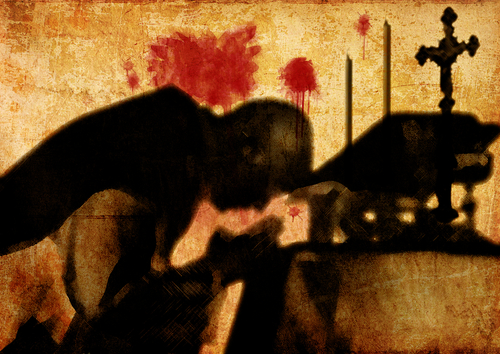President Trump’s threat of U.S. military action in Nigeria over Christian persecution marks a dramatic new front in defending religious freedom—and could reshape America’s role on the world stage.
Trump Draws a Red Line on Christian Persecution in Nigeria
Recently, President Trump designated Nigeria as a “country of particular concern” for religious freedom violations and issued an unprecedented threat: the United States may halt all aid and consider military action if the Nigerian government fails to stop the reported killings of Christians. This bold move reflects Trump’s continued commitment to defending religious liberty abroad—a value deeply cherished by American conservatives and evangelical communities. The threat includes possible troop deployments or airstrikes, signaling that the administration will not tolerate attacks on Christian communities without consequences.
Nigeria, Africa’s most populous country, has long struggled with religious and ethnic violence, especially in the north, where Islamist militants like Boko Haram have targeted both Christians and Muslims.
The Trump administration, under pressure from American Christian advocacy groups, has elevated religious freedom as a key pillar of foreign policy. By threatening military intervention, Trump is sending a message to both Nigeria and the world: the United States will defend persecuted Christians, even at the risk of disrupting longstanding diplomatic ties with a critical African partner.
Nigerian Government Pushes Back, Citing National Sovereignty
Nigerian President Bola Ahmed Tinubu quickly rejected Trump’s characterization, stating that Nigeria remains committed to religious freedom for all citizens and denouncing any suggestion of religious intolerance.
Tinubu emphasized that security challenges affect Nigerians across faiths and regions, insisting that the violence is not one-sided or targeted solely at Christians. This public pushback underscores the diplomatic rift now emerging between Washington and Abuja, with Nigeria intent on preserving its sovereignty and international reputation in the face of U.S. pressure.
The diplomatic fallout has intensified, as Nigeria’s government asserts its right to address internal conflicts without foreign intervention. While Nigeria continues security operations against Islamist groups, it has warned that U.S. threats could destabilize the region and undermine ongoing efforts to combat violence. Both governments maintain open channels for negotiation, but the risk of escalating tensions remains high as the Trump administration keeps all options on the table.
Complex Causes and the Debate Over U.S. Intervention
Human rights organizations such as Amnesty International note that violence in Nigeria is driven by a mix of religious, ethnic, and economic factors. While attacks on Christians are well-documented, experts caution against oversimplifying the conflict as purely religious. Graham Wood, writing for The Atlantic, points out that the situation is more complex than Trump’s framing and warns that large-scale U.S. military intervention in Nigeria would be unprecedented and logistically challenging. Previous American engagements in West Africa have been limited to counterterrorism, not direct intervention in domestic conflicts of this scale.
Many analysts argue that U.S. military action could inflame anti-American sentiment and undermine local solutions. Some American Christian groups, however, support Trump’s firm stance, seeing it as necessary to protect vulnerable believers.
The debate continues in both U.S. and international media, with the appropriateness and potential consequences of intervention remaining hotly contested. For conservatives, the story underscores the need for strong leadership willing to defend religious liberty while weighing the costs of foreign entanglements.
Potential Fallout for U.S.-Nigeria Relations and American Interests
Trump’s ultimatum has placed U.S. aid to Nigeria under review and triggered anxiety among Nigerian Christian communities. In the short term, diplomatic relations face unprecedented strain, and humanitarian groups warn that suspending aid could deepen the crisis.
In the long term, a military intervention could set a precedent for using American power to protect religious freedom—but at the risk of damaging critical security and economic partnerships in Africa. U.S. interests in oil and trade, as well as anti-terror cooperation, hang in the balance as both sides navigate the fallout.
No immediate military action has been reported, but the situation remains fluid. The Trump administration’s willingness to use force against a key regional power marks a historic shift. For American conservatives, this approach signals a renewed commitment to core values—defending faith, standing up to global indifference, and demanding accountability abroad. Whether this strategy brings real change or unintended consequences will depend on careful diplomacy and the courage to defend what matters most.

